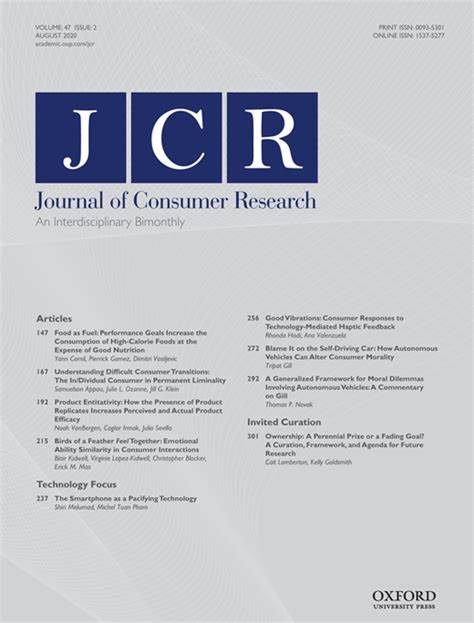The Preference for Spontaneity in Entertainment
IF 6.4
1区 管理学
Q1 BUSINESS
引用次数: 0
Abstract
Whether watching a movie, sports game, or musical performance, consumers often seek entertainment experiences that are produced by one or more individuals. And although consumers often witness producers acting spontaneously, little is known about the preference for spontaneity in entertainment. Six studies, including real consumer-relevant decisions and a Facebook field experiment, reveal that consumers prefer spontaneity (vs. planned behavior) across several entertainment contexts, as spontaneous producers seem more authentic than planned producers. At the same time, however, spontaneous actions are also believed to beget lower-quality outcomes, suggesting that consumers generally prefer spontaneity even despite the possibility of reduced quality. Subsequent experiments examine characteristics of the entertainment context and producer to provide further insight into how consumers manage the authenticity-quality trade-off: By shaping when and why spontaneity is associated with increased authenticity and decreased quality expectations, as well as the relative importance of these dimensions, higher-stakes contexts (e.g., when consumers’ outcomes are enmeshed with the producer’s), negative inferences about spontaneity (e.g., laziness, lack of concern), and low-competence producers attenuate the effects. Together, this research advances knowledge about spontaneity and authenticity and has implications for those seeking to produce appealing entertainment experiences.娱乐中对自发性的偏好
无论是看电影、体育比赛还是音乐表演,消费者通常都会寻求由一个或多个个人创造的娱乐体验。尽管消费者经常看到制片人自发行动,但人们对娱乐中自发性的偏好知之甚少。六项研究,包括真实的消费者相关决策和Facebook的实地实验,表明消费者在几种娱乐环境中更喜欢自发性(相对于有计划的行为),因为自发性生产者似乎比有计划的生产者更真实。然而,与此同时,自发行为也被认为会产生较低质量的结果,这表明消费者通常更喜欢自发,即使质量可能会降低。随后的实验考察了娱乐环境和制作人的特征,以进一步深入了解消费者如何管理真实性-质量权衡:通过塑造自发性何时以及为什么与真实性增加和质量期望降低相关,以及这些维度的相对重要性,高风险的环境(例如,当消费者的结果与生产者的结果纠缠在一起时)、对自发性的负面推断(例如,懒惰、缺乏关注)和低能力的生产者会减弱这种影响。总之,这项研究提高了人们对自发性和真实性的认识,并对那些寻求创造有吸引力的娱乐体验的人产生了启示。
本文章由计算机程序翻译,如有差异,请以英文原文为准。
求助全文
约1分钟内获得全文
求助全文
来源期刊

Journal of Consumer Research
BUSINESS-
CiteScore
12.00
自引率
9.70%
发文量
53
期刊介绍:
Journal of Consumer Research, established in 1974, is a reputable journal that publishes high-quality empirical, theoretical, and methodological papers on a wide range of consumer research topics. The primary objective of JCR is to contribute to the advancement of understanding consumer behavior and the practice of consumer research.
To be considered for publication in JCR, a paper must make a significant contribution to the existing body of knowledge in consumer research. It should aim to build upon, deepen, or challenge previous studies in the field of consumption, while providing both conceptual and empirical evidence to support its findings.
JCR prioritizes multidisciplinary perspectives, encouraging contributions from various disciplines, methodological approaches, theoretical frameworks, and substantive problem areas. The journal aims to cater to a diverse readership base by welcoming articles derived from different orientations and paradigms.
Overall, JCR is a valuable platform for scholars and researchers to share their work and contribute to the advancement of consumer research.
 求助内容:
求助内容: 应助结果提醒方式:
应助结果提醒方式:


